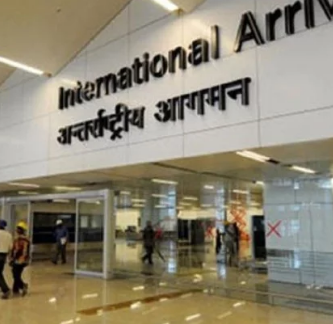DAINIK NATION BUREAU : In the realm of Indian politics, verbal sparring and heated exchanges are common place. However, a recent incident involving Union Minister Smriti Irani’s accusation of Rahul Gandhi “setting Manipur on fire” has escalated into a verbal fight between the two prominent leaders. The incident has drawn significant attention, sparking debates over the use of rhetoric in political discourse. Taking cognizance on the accusation Rahul Gandhi’s retort, and the implications of such political exchanges on public perception and the overall political climate.
The Accusation Unleashed :
During a recent public address, Union Minister Smriti Irani leveled a serious accusation against Rahul Gandhi, asserting that he was “setting Manipur on fire.” The remark came in the context of the ongoing political developments in the northeastern state, where the Congress party has been voicing concerns over governance issues and other matters.
Rahul Gandhi’s Retort: A Counterpunch :
In response to Smriti Irani’s accusation, former Congress President Rahul Gandhi wasted no time in delivering a swift retort. He countered the accusation by stating that he did not have the power to “set Manipur on fire” as he was not in a position of governance in the state. The retort emphasized the responsibility of the central government, represented by Smriti Irani’s party, to address issues in states under its jurisdiction.
Political Rhetoric and Public Perception :
The verbal exchange between Smriti Irani and Rahul Gandhi highlights the intense nature of political rivalry and the use of potent rhetoric in contemporary Indian politics. While such exchanges are not uncommon, they can significantly impact public perception of political leaders and parties.
On one hand, heated accusations can energize party supporters and mobilize political bases, amplifying the ideological divide. However, on the other hand, this form of rhetoric can also lead to disillusionment among the general public, who often yearn for constructive discussions and solutions to pressing issues.
Impact on Political Climate in Manipur :
The verbal confrontation between national leaders has the potential to influence the political climate in Manipur. As the state grapples with its own set of challenges and developmental issues, it is essential for political leaders to focus on addressing these concerns rather than engaging in verbal hostilities. The people of Manipur seek effective governance and solutions to their problems, and political leaders must prioritize their welfare above political point-scoring.
Towards Responsible Political Discourse :
Political discourse serves as a means of exchanging ideas, discussing policies, and addressing societal challenges. However, responsible discourse is crucial to maintaining the dignity of the democratic process and fostering an environment of respect and cooperation.
Both Smriti Irani and Rahul Gandhi, as prominent leaders, hold the responsibility to uphold the tenets of respectful political dialogue. Engaging in constructive discussions, addressing issues constructively, and seeking common ground can lead to more meaningful and impactful governance for the benefit of the people.
The verbal altercation between Smriti Irani and Rahul Gandhi over the accusation of “setting Manipur on fire” showcases the intensity of political rivalry in India. As political leaders, they carry the responsibility of setting an example for responsible and constructive political discourse. In the interest of the nation and its citizens, it is crucial for leaders to focus on addressing substantive issues rather than indulging in heated exchanges. Responsible political discourse can foster an environment of cooperation, enabling the country to tackle its challenges and work towards inclusive development.
 Dainik Nation News Portal
Dainik Nation News Portal


